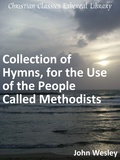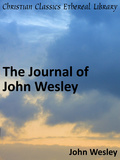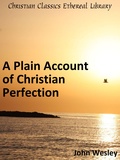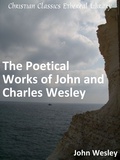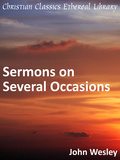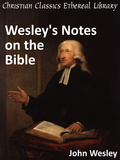John Wesley
Preacher, theologian and founder of the Methodist Church
Biography
The Wesley family was made famous by the two brothers, John and Charles, who worked together in the rise of Methodism in the British Isles during the 18th century. They were among the ten children surviving infancy born to Samuel Wesley (1662 - 1735), Anglican rector of Epworth, Lincolnshire, and Susanna Annesley Wesley, daughter of Samuel Annesley, a dissenting minister.
John Wesley was born June 28, 1703, died Mar. 2, 1791, and was the principal founder of the Methodist movement. His mother was important in his emotional and educational development. John's education continued at Charterhouse School and at Oxford, where he studied at Christ Church and was elected (1726) fellow of Lincoln College. He was ordained in 1728.
After a brief absence (1727 - 29) to help his father at Epworth, John returned to Oxford to discover that his brother Charles had founded a Holy Club composed of young men interested in spiritual growth. John quickly became a leading participant of this group, which was dubbed the Methodists. His Oxford days introduced him not only to the rich tradition of classical literature and philosophy but also to spiritual classics like Thomas a Kempis's Imitation of Christ, Jeremy Taylor's Holy Living and Dying, and William Law's Serious Call.
In 1735 both Wesleys accompanied James Oglethorpe to the new colony of Georgia, where John's attempts to apply his then high-church views aroused hostility. Discouraged, he returned (1737) to England; he was rescued from this discouragement by the influence of the Moravian preacher Peter Boehler. At a small religious meeting in Aldersgate Street, London, on May 24, 1738, John Wesley had an experience in which his "heart was strangely warmed." After this spiritual conversion, which centered on the realization of salvation by faith in Christ alone, he devoted his life to evangelism. Beginning in 1739 he established Methodist societies throughout the country. He traveled and preached constantly, especially in the London-Bristol-Newcastle triangle, with frequent forays into Wales, Ireland, and Scotland. He encountered much opposition and persecution, which later subsided.
Late in life Wesley married Mary Vazeille, a widow. He continued throughout his life a regimen of personal discipline and ordered living. He died at 88, still preaching, still traveling, and still a clergyman of the Church of England. In 1784, however, he had given the Methodist societies a legal constitution, and in the same year he ordained Thomas Coke for ministry in the United States; this action signaled an independent course for Methodism.

